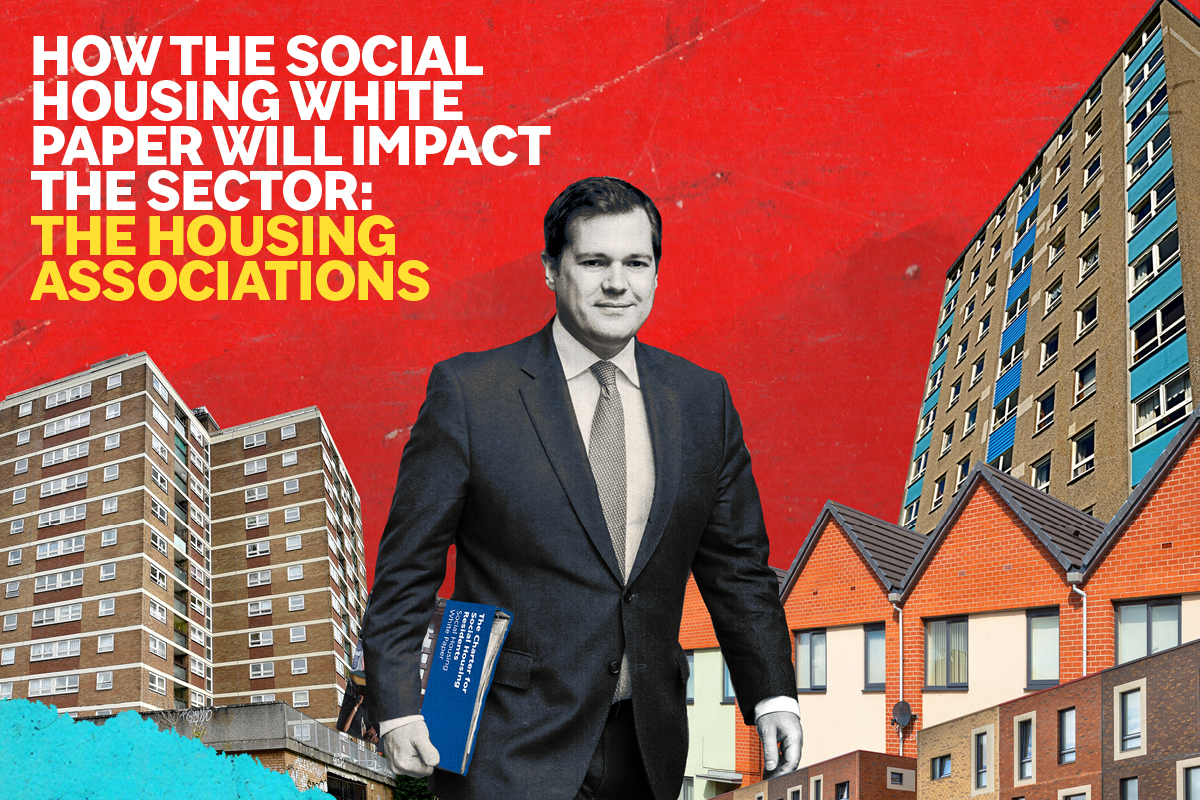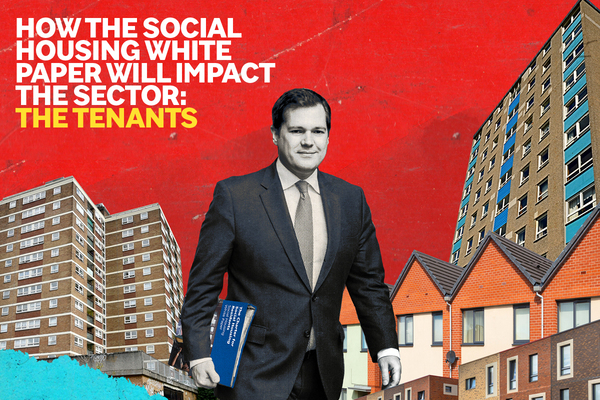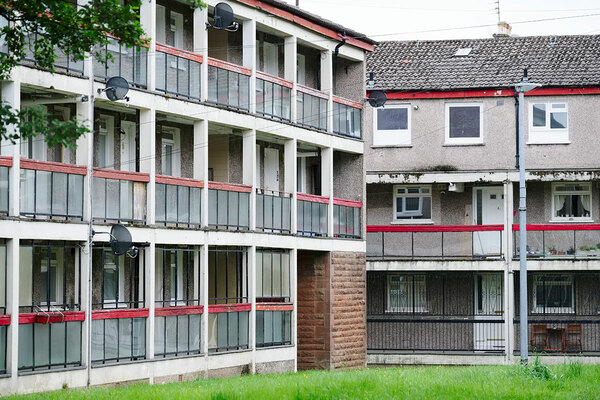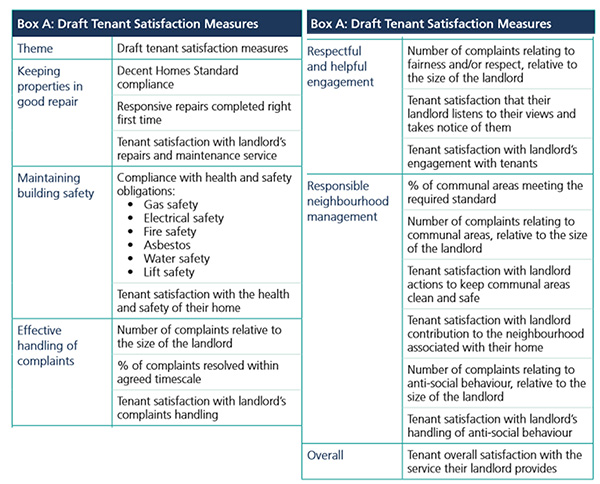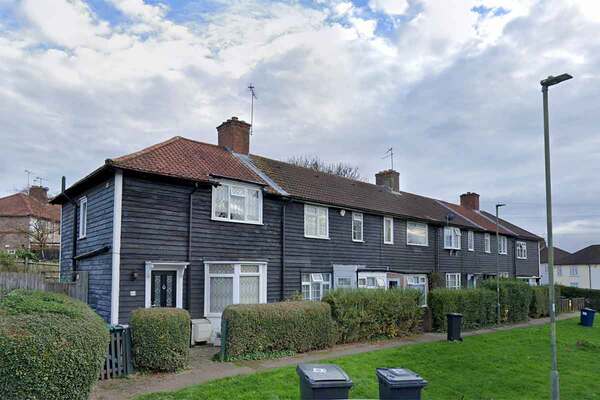You are viewing 1 of your 1 free articles
How the Social Housing White Paper will impact the sector: housing associations
The long-awaited Social Housing White Paper was published on Tuesday. Dominic Brady considers how the government’s post-Grenfell plans will affect housing associations.
The government was clear in its Social Housing White Paper that it aims to put tenants at the heart of how social housing will operate going forward.
The tragic events at Grenfell Tower in 2017 exposed a system in which tenants’ voices were not being heard and housing secretary Robert Jenrick said conversations with survivors were the genesis of the white paper released by his department this week.
“The Charter for Social Housing Residents”, as it is also known, introduces a suite of new regulatory measures aimed at protecting social housing tenants and with that comes extra responsibility for registered providers. Here, Inside Housing looks at some of the key aspects of the white paper and how they will affect housing associations.
Building safety
Under the terms of the much-anticipated white paper, landlords will be required to appoint a ‘responsible person’ who will ensure that the organisation complies with consumer standards that the Regulator of Social Housing (RSH) will set out in a new code of practice.
This represents an enormous new responsibility for many housing associations, some of which have around 100,000 homes.
As Geeta Nanda, chief executive of 57,000-home Metropolitan Thames Valley, explains: “That is an area where there is a lot more we are going to need to spend. We will be looking for new roles and ensuring that we can put together the information required.”
Hiring people to meet this requirement is unlikely to be cheap, as the white paper states: “The health and safety responsible person should be sufficiently senior to drive a culture of safety throughout the landlord organisation.”
This can be seen as part of the government’s wider attempts to improve accountability – something that proved to be sorely lacking in the case of Grenfell. It echoes the idea of an ‘accountable person’, as set out in the Fire Safety Bill produced earlier this year, who will need to be in place for each high-risk building.
Gerri Scott, group director of customer services at L&Q, said: “In terms of the overall responsibility on buildings, we are already bringing people into new posts.
“This paper pulled together a lot of other pieces of legislation and guidance, so we should be able to adapt quite quickly.”
Fines
Currently, the RSH can downgrade an organisation based on its governance and viability standards, but the regulator is to be given new teeth – unlimited financial sanctions. Currently, under the Housing and Regulation Act 2008 the regulator can issue fines capped at £5,000.
The white paper says this will give the RSH “greater flexibility to determine the appropriate sanction depending on the circumstances, and bring the regulator’s power more into line with other regulatory bodies (such as those in the finance or environment sectors)”. For instance, the Environment Agency (EA) can prosecute a person or business it believes has committed a crime against the legislation it enforces; those in breach of regulations can face unlimited fines or imprisonment
There are no further details about how the RSH will be able to issue fines.
Gerri Scott says the new powers will mean housing associations are “pushing up oversight and scrutiny”.
“It’s not necessarily a bad driver to improve the quality of our services for our customers and it emphasises the importance of dealing with complaints,” she adds.
Tenant satisfaction
Housing associations already collect information about tenants’ satisfaction and typically publish this data in their annual accounts. However, the requirements proposed in the white paper will go further, ensuring associations include “both objective quantitative measures and tenant perception measures”.
The government said it will be up to the regulator to consider how best to present the information, but it suggested as a minimum providing every tenant with an annual statement.
Nigel Wilson, chief executive at Gentoo, sees this as a softer version of the league table system originally proposed in the 2018 green paper, which conspicuously has been dropped from the white paper.
“At the end of the day, the regulator is going to produce the tabulation of how we are all performing. Whether it is called a league table or not, there is going to be some sort of reporting and people will be in different places,” he explains.
Transparency
Housing associations are already concerned about the white paper’s proposal of an “access to information scheme”, which will require them to provide information relating to their organisation and their sub-contractors.
Exemptions under the new scheme will be “broadly aligned” with those of the Freedom of Information Act 2000.
Housing associations will have to consider how to deal with the pressures on resources that may come with this new responsibility.
Sue Shirt, executive director for customer experience at Stonewater, warns that the measure could encourage residents to conduct “fishing exercises” that take resources away from dealing with the original problems.
“Organisations should be very transparent about the way they deliver services to customers and that should be in open forums. But we do not want it to become a bureaucratic exercise where people are fishing for information,” she adds.
Ms Nanda explains that giving customers access to more information is likely to have financial implications and says housing associations are already giving “a mountain of information” to customers related to building safety.
“It’s very difficult for residents and difficult for our staff as well, in terms of coping with the information that people already want to challenge. Anything that opens up more information is going to be costly.”
Proactive regulation
Part of the government’s attempts to strengthen the RSH will include the establishment of “routine inspections” every four years for those landlords that have more than 1,000 homes.
Currently, the RSH only acts when issues concerning consumer standards are brought to its attention and when a failure might lead to or has already resulted in “serious detriment”.
The government is proposing to scrap the serious detriment test and the RHS will have to proactively regulate through routine inspections.
Ms Scott tells Inside Housing L&Q has already been talking to the regulator about how these inspections would interact with existing in-depth assessments, but notes that details are unclear.
She is anticipating that larger housing associations are likely to be prioritised when it comes to beginning the inspection cycle.
Ms Scott adds: “There’s more of an attitude of self-regulation as well, so it’s about providing oversight and scrutiny on an ongoing basis so that the route inspection adds value to your work.”
Update: at 09:20am 20.11.20
Story edited to clarify the current limit on fines issued by the RSH
